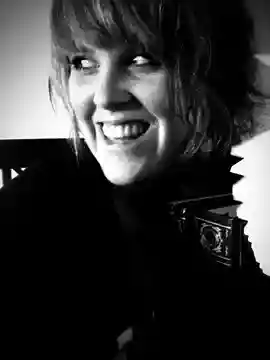A few weeks ago I was queried with a graphic novel. The premise sounded wonderful and I immediately dove into the five sample chapters that were pasted into the body of the email. A few paragraphs into the sample chapters I thought to myself, “wait…isn’t this supposed to be a graphic novel?” Unfortunately, it was completely written in prose and I couldn’t consider it as a graphic novel. Reading prose and trying to imagine it as a graphic novel is like looking at a painting and trying to imagine every material that went into making it; not impossible—but not the way you should be experiencing the art.
There are many writers that have no concept of what goes into writing a graphic novel, yet love the genre and wish to create one of their own. There are a few types of acceptable graphic novel scripts but hundreds of unacceptable scripts. And oh yes, there is that tiny matter of conveying your vision to an artist… the right artist.
This is just the tip of Titanic’s iceberg that we will cover in my course, Intro to Writing Graphic Novels. For your benefit, the LitReactor staff and I sat down to flesh out some questions you might have before signing up for the course:
Question:
I have a great idea for a graphic novel. It's keeping me awake at night. I can picture it panel- for-panel, even though I'm no kind of artist, but I'm even more obsessed with the story line. I've been roughing out the plot points in more or less a three-act structure. I've got some dialogue down and I've got a clear concept of my main characters. Should I continue to draft this on my own or should I pitch the idea to a publisher and try for a contract before I finish it?
Answer:
As an agent, I prefer to see a complete script. However, some smaller niche graphic novel publishers and a select few larger graphic novel imprints will accept concept pitches or detailed treatments. Many of the mainstream publishing houses (The Big Six, as we say in the industry) favor complete scripts. The most important thing is to make sure your script format is correct before you go too far.
Question:
Should I seek out an artist collaborator or should I seek out an agent or publisher who will make those connections for me? What are the pros and cons?
Answer:
Unfortunately, there is no easy answer to this question. It’s really a case-by-case situation. Smaller niche graphic novel publishers prefer to use in-house illustrators. In the larger publishing house arena, they mostly want to see sample panels, however, they are (rightfully so) very picky about art and it can take several artists, before YOU find the one they feel fits the material. Do not go out and hire an artist just for the sake of having an artist. Text and illustrations are a marriage. They must completely bond.
Question:
How can I protect my work? My story's kind of high concept and I'm afraid of someone grabbing the idea and giving it to their own creative team. How can I protect myself from that outcome?
Answer:
If this is a concern of yours, register your copyright. You can do this through the Writer’s Guild of America or by sending it to the Library of Congress for a copyright.
Question:
Is there a standard kind of pitch or proposal package that's expected for graphic novels?
Answer:
Again, it depends on the house, but I’ve found that a complete script and sample panels (when an artist is attached) are generally sufficient for publishers. If you do not have a complete script, aim for a 10-20 page treatment with high concept, character sheet, creator bio info, and an art sample.
Creating a graphic novel is no easy task. Just thinking about lettering and coloring alone makes learning how to script the thing sound like cake. I’m so excited to teach you how to turn your concept into a correct and viable submission. I hope this interview has revved your engines. I’m looking forward to exploring this topic much more in-depth in my four-week course on LitReactor.
-Bree Ogden

About the author
Bree Ogden is a literary agent at Red Sofa Literary and a comics/TV columnist and reviewer at Bloody Disgusting.
When she's not agenting, compulsively watching horror films, reading comics, hiding out at her local science center, or killing off her bee colonies, she serves as the managing editor of the macabre children's magazine Underneath the Juniper Tree, which she co-founded in 2011 with artist Rebekah Joy Plett.
Bree teaches query craft and graphic novel scripting at LitReactor as well as serves as the Assistant Class Director. Unless you are an exciting new piece of taxidermy, she'll probably never let you in her room. You can find her at agentbree.wordpress.com.








